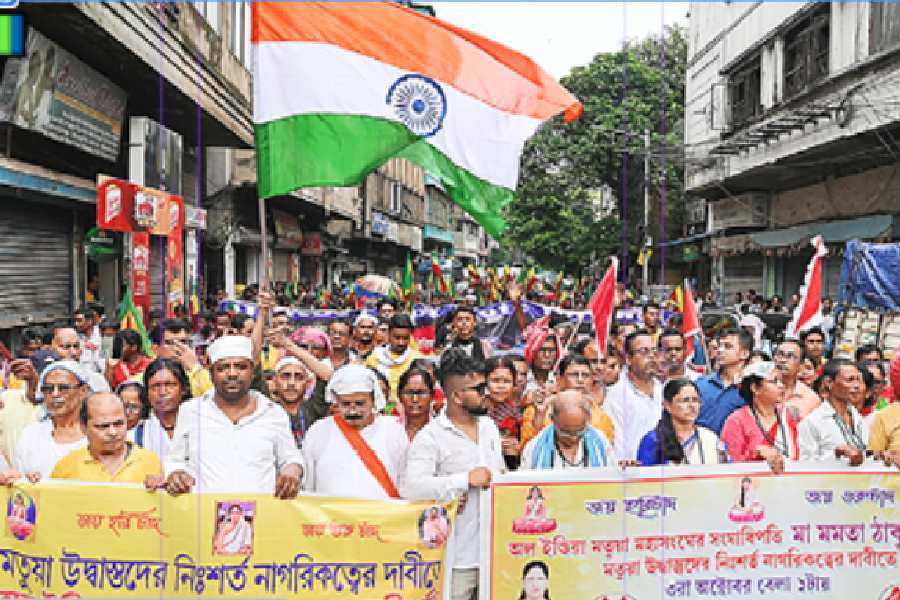The slogan, ‘Cholche, cholbe’, or its obverse, evokes bitter-sweet sentiments. On the one hand, the sloganeering is associated with the robustness of public rallies, an essential component of the democratic ethos, especially at a time when the country has been seized upon by political authoritarianism that frowns upon both dissent and its modes of expression. But rallies can also be a nuisance. The city was reminded of their disruptive potential, once again, when three such assemblies brought large parts of Calcutta to a halt recently. The sufferers, as is the case, were the ordinary people. Patients, it has been reported, missed important medical appointments; school children, too, were equally inconvenienced; but the biggest victims of the rallies perhaps were traders, who were looking forward to a day of brisk sale before the festive season, and day labourers, who lost their daily earnings. Late last month, another rally had resulted not just in disruptions but it also witnessed heated exchanges between commuters and rallyists. The Calcutta High Court has expressed its anguish over the state of affairs; the chief justice even had a word of admonition for a group of educationists who were demanding permission for a rally. A large section of the citizenry undoubtedly shares the court’s displeasure.
Yet, it must be pointed out that this is a delicate issue. The collective right to protest cannot be dismissed. Nor should it be throttled. This, in fact, is the reason why it is unreasonable to stop marches with legislation. But public convenience cannot always be sacrificed at the altar of democratic rights, especially when the latter infringe upon the people’s right to access amenities such as education and healthcare. So a balance must be struck. Should designated spaces be allocated for processions and rallies? Metropolises around the world have experimented with this strategy, not always successfully. Or should rallies be permitted on specific days? Whatever be the alternative — if there is one — the decision needs to be arrived at through collaboration among the stakeholders — the administration, protesting organisations and, most importantly, the citizenry. But the key question is this: would the prevalent roguish culture of political activism adhere to the rules if a consensus were to emerge on such regulations? That would be the acid test for democratic culture and civic ethos. The two need not be complementary in Bengal or, indeed, in India.











